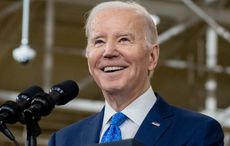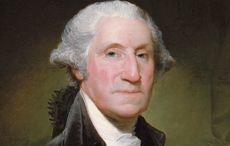There are few people who started out life with less than Michael Dowling, 62, head of the massive North Shore-LIJ Health System, a $6 billion organization that is the second largest health care group in the U.S.
Dowling will be honored at the American Irish Historical Society dinner at the Waldorf Astoria in New York on Thursday, November 3.
He will join a stellar cast who have been so honored with the society’s Gold Medal, including President Reagan, Bono and Cardinal O’Connor to name a few, but it is doubtful anyone in the august society’s history will have come so far from humble beginnings.
If it reads like a true-life version of a script from a Frank McCourt novel, that is because it is.
Dowling was born in the little village of Knockaderry in West Limerick in a thatched cottage.
His father, suffering from eventually fatal arthritis, could work no more from age 42. His mother became deaf at a very young age. There were five young mouths to feed and very little to go around.
From this unpromising beginning Dowling climbed to the stars, one of the great examples of what Irish grit and determination can do, as well as the power of America to reinvent yourself.
When you meet Michael Dowling you expect to almost see the bootstraps he pulled himself up with, but he is a remarkably modest man for his accomplishments.
He keeps one reminder of his tough beginnings and his adored parents -- an exact model replica of the thatched cottage he grew up in, built by himself to scale.
Dowling keeps it as a reminder if he ever feels he is getting ahead of himself that he can reach out and touch that model to ground once more in the earth of his native land.
He views life as a journey, with lots of detours, and “let the road take you where it may.” His greatest gift was his parents’ belief in him and their insistence that despite the poverty that he receive a full high school education.
At age 17 the road took him to London and the harsh emigrant experience so many Irish have underwent, working in a steel factory, sending money home to his parents.
Dowling had completed his high school education and was considered so bright that he won a place in university, unheard of at the time for a man of his poor background.
To pay his way he came to America in 1968. He worked on the docks, he cleaned bars at 5 a.m. in the morning, and toiled in the sweltering engine room of the Circle Line boats.
Each fall he retuned home to finish his degree at University College Cork where he also became known as an outstanding hurler, representing his native Limerick in Ireland’s oldest sport.
He moved permanently to the U.S. after his graduation with an arts degree, working long days and even some nights supporting his parents back home.
Always interested in helping those less well off, Dowling eventually went to Fordham and graduated with a master’s degree in social welfare. He was considered such a brilliant student that he soon found himself teaching the topic at Fordham where he climbed the faculty ladder and became a professor.
In 1983 the newly elected Governor of New York Mario Cuomo came looking for an innovative mind immersed in social policy to handle the state’s massive health and human services portfolio.
Dowling became commissioner at the Department of Social Services overseeing a budget of $35 billion, dealing with all the state’s welfare, employment, Medicare, child welfare, foster care and myriad other programs.
He won many awards for his stewardship and showed a particular interest in helping children in need.
Unlike many others, Dowling does not knock those who work in government but praises them.
“ I found there were a lot of very smart people in government,” he says. “Sure government makes mistakes -- show me any group that doesn’t -- but when it comes to really difficult problems, ones that I saw such as the homeless, crack, AIDS and foster children, only government stands between us and disaster.”
Dowling’s commitment to caring for others became evident when he left at the end of the Cuomo era and shortly afterward, joined North Shore-LIJ hospital system.
He played a leading role in the formation of the system in 1997 and became president and CEO in January 2002.
Dowling quickly built a reputation as a doer, creating a partnership with GE and the Harvard School of Public Health to create a Center for Learning and Innovation which is the envy of the medical world.
A new medial school at Hofstra University on Long Island is just another of his successful projects.
Dowling is known as a team player. Every Monday he personally meets and introduces himself to each new employee within the system and tells them what he expects of them.
He hosts lunches for ordinary staff members to hear their views, is unafraid to make profound changes when he takes over a new institution, as he has done at Lenox Hill Hospital in New York which North Shore-LIJ recently acquired.
Dowling sees the future of medicine as threefold -- one where costs are contained by greater preventive effort such as combating obesity, a move away from payments for the number of tests administered to a far more cost efficient approach, and a new partnership forged between health care executive and the medical professionals who staff the hospitals.
To all who say such visions are pie in the sky one has only to look at Michael Dowling’s extraordinary life and what he has achieved so far.
“Never be satisfied” is his motto, another is “we can always do better.”
In Dowling’s case that is a daily refrain both for himself and his staff. His parents would expect nothing less.




Comments